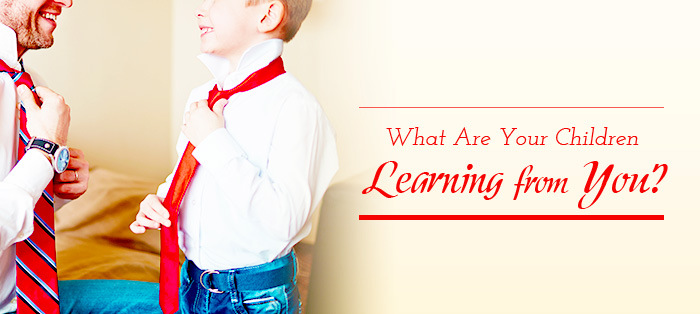Whether you want to or not, you do serve as a role model. —Brooks Robinson, American baseball player
What are your kids really learning from you? As parents, our children are picking up good habits as well as bad ones. No parent is PERFECT! We all have our strengths and weaknesses. The better we know ourselves, the better parents we will be to our kids.
Below are Tips for All Parents
All parents
- Know yourself. What are you good at? What do you struggle with? How are you striving to become a better person?
- Be intentional about how you parent. Focus on being a positive role model.
- Ask your kids what they are learning from you, you may be surprised at what they are picking up.
- Notice how you treat the mistakes you make (and the mistakes made by others in your family). Are you hard on yourself or have an attitude of learning from every mistake.
- Have a sense of humour about yourself and do not take yourself or life too seriously, when you can laugh at yourself you teach your children to be relaxed.
Parents with children aged birth to 9
- At this age, children imitate the adults around them. They copy almost everything that you do—from helping others to swearing. Your child is like a mirror that reflects everything that you do.
- Children imitate not only their parents but other adults around them. If your child starts doing something negative that you do not do, trace the behaviour back to the source. Talk to the adult and explain how he/she is influencing your child.
- As a parent of a young child, you have a lot of demands on you in terms of parenting, earning an income, running a home, and more. Young children quickly pick up on your stress levels and moods, so pace yourself and avoid becoming overwhelmed.
- Do not be surprised if your kids ask you why its okay for you to yell when you are angry, but it’s not okay for them to do the same.
- Ensure you model good studying habits and taking work seriously. When your child does homework ensure it is done in a quiet, conducive environment.
Parents with children aged 10 to 15
- Between these ages, your kids can really push your ‘buttons’. These buttons tend to be the weak and vulnerable side of yourself. When your kids hurt you, say so. If your kids are right take the point.
- Many kids at this age can be ruthless with their peers, ensure you model positive ways to interact so that your child feels your home is a safe haven to learn from.
- Have a talk with your child about how everyone learns and grows through life’s experiences. Discuss with your child how you are learning and improving yourself. Ask your child what he/she is focusing on.
Parents with children aged 16 to 18
- At this age, you can begin to talk more about complexities of being human, such as being compassionate toward others. This is a good time to turn some real life situations into case studies.
- Periodically ask your teenager what makes it difficult to be a teenager. Listen. Ask questions. Ask your teenager how you can support him/her.
Even though they may seem to be mature, teenagers are still watching you. They’re still listening to you (even if they’re not doing what you say). They continue to learn from you.
Culled from www.parentingfurther.com
Photo source: www.pinterest.com, www.madzkills.wordpress.com




